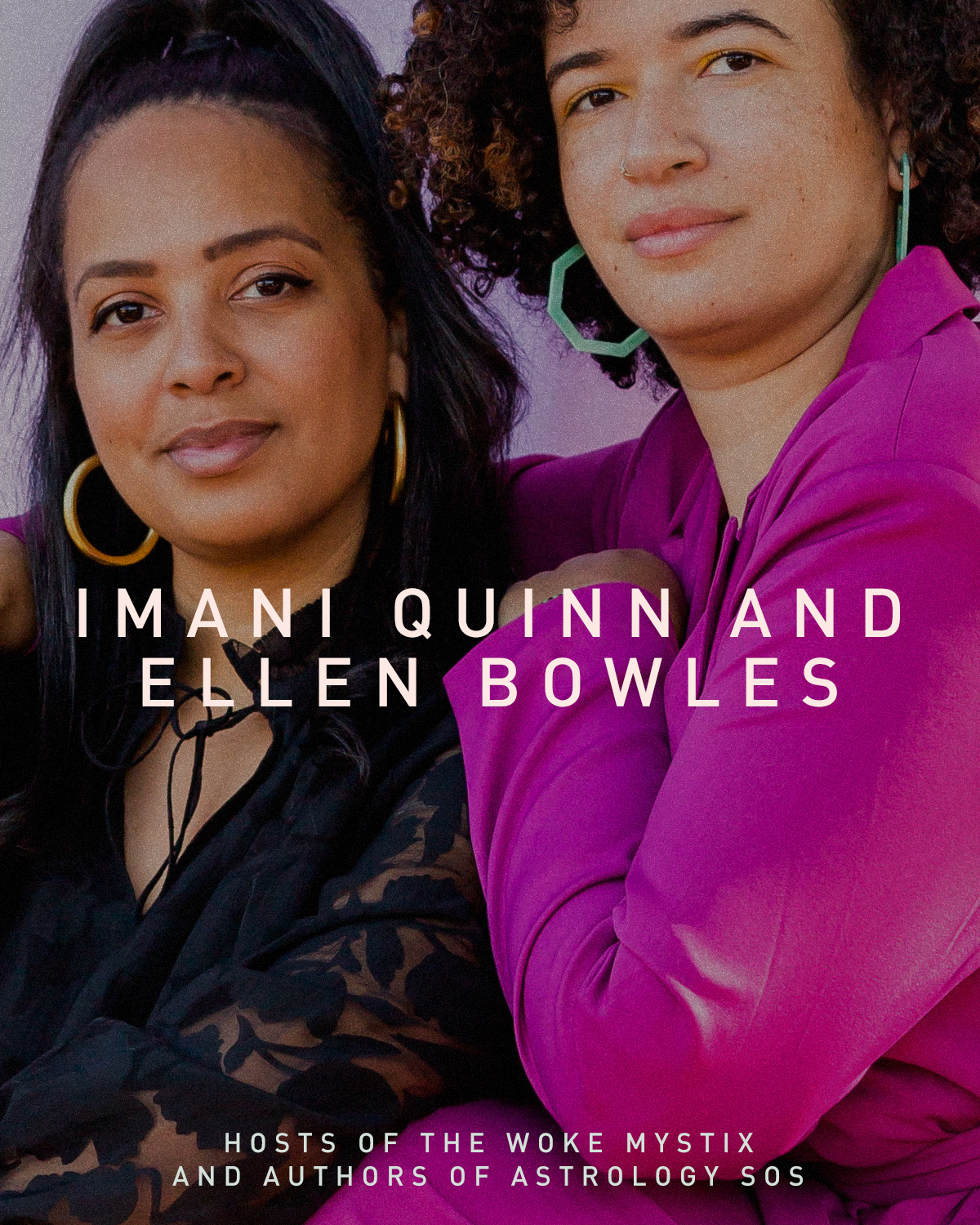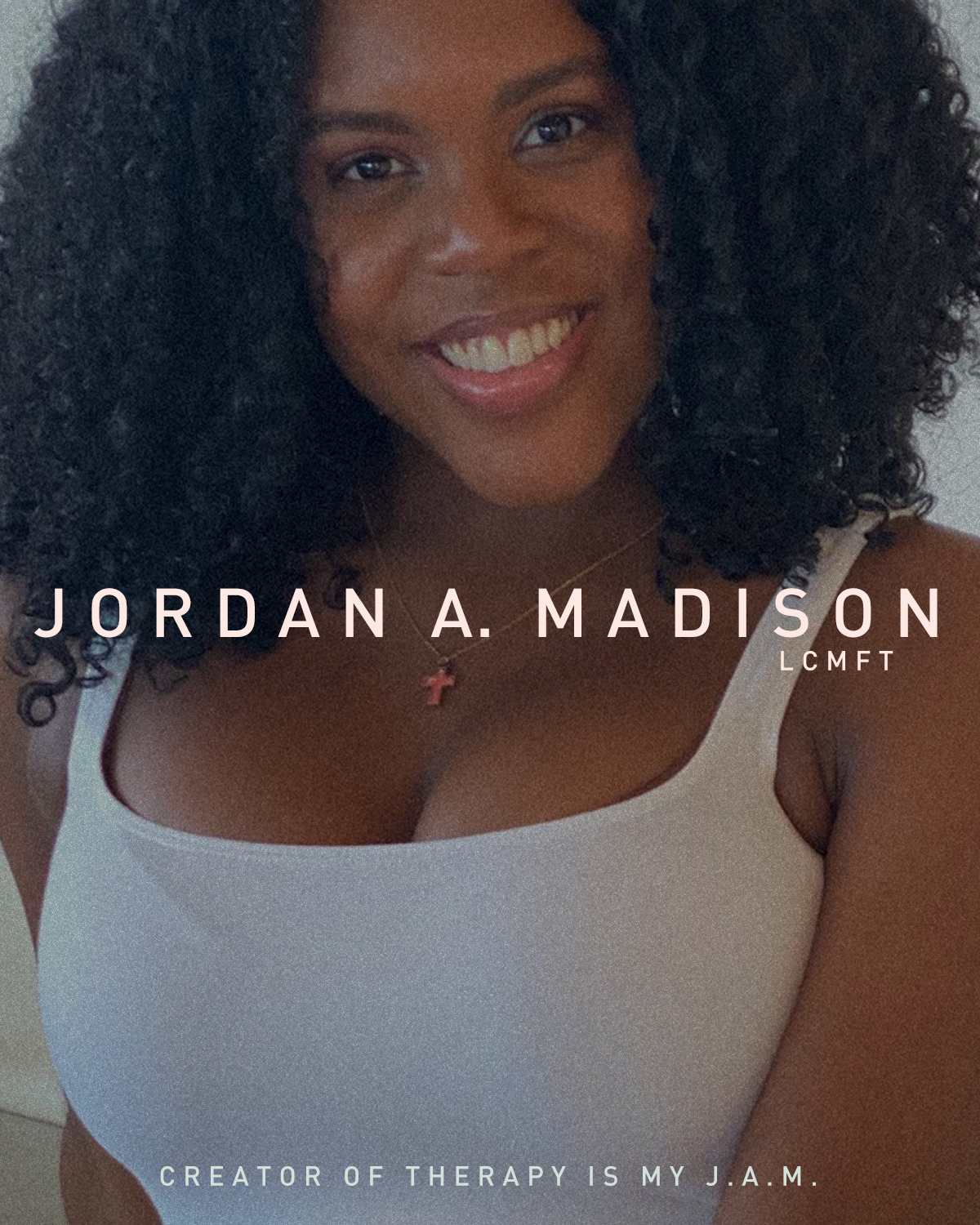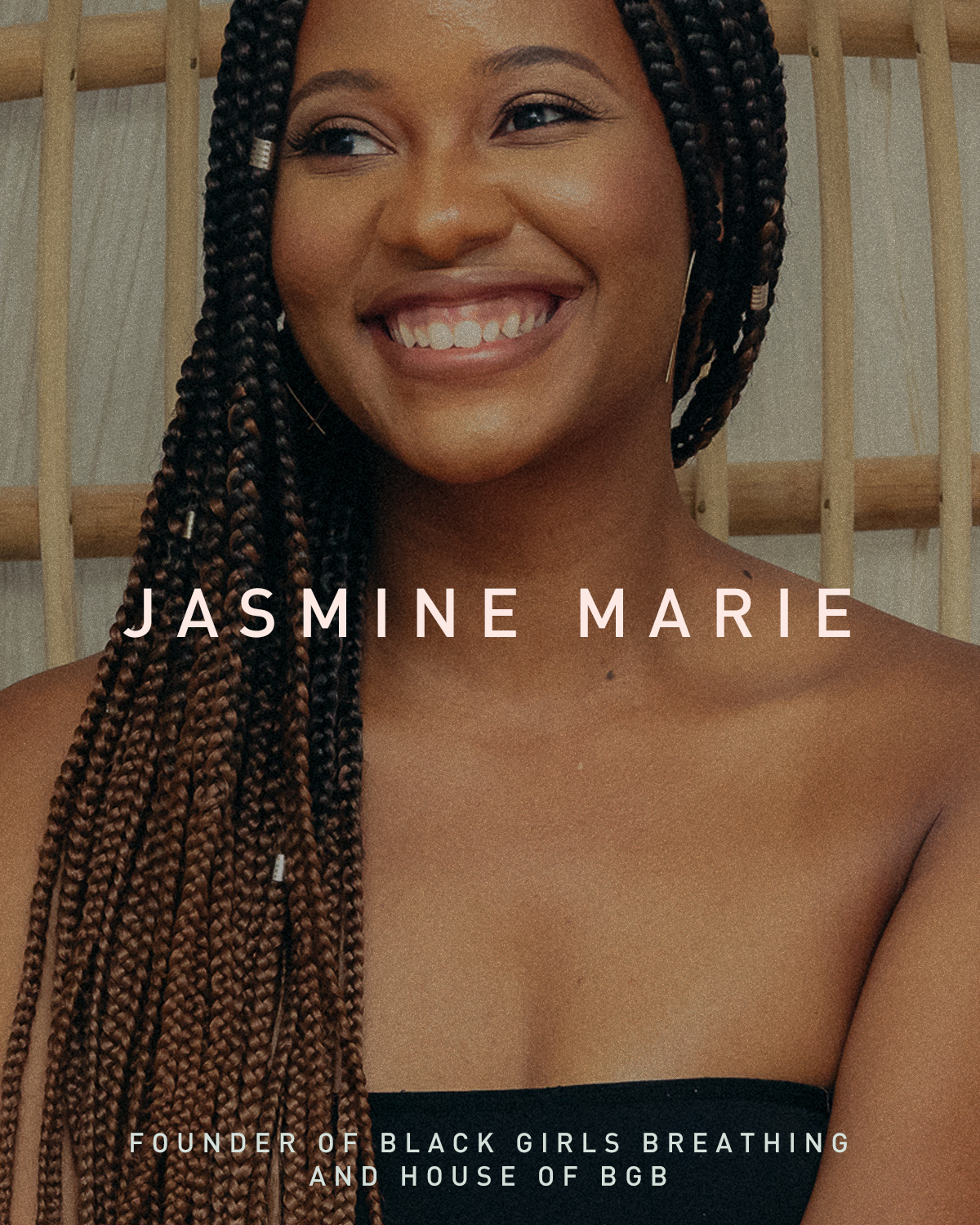The State of Wellness Right Now, According to 5 Black Industry Experts
It's an understatement to say our world has changed in the past year. But possibly the most significant shift has been the collective awakening and reckoning the world has had with racism, social justice, equity, and representation. The political and social movements to end police brutality and injustice weren't just discovered or created this previous year. Systemic racism and biases have been deep-rooted in our society, our country, and the world. For Black people, the movement toward justice has been happening for a long time. It's only more recently that everyone has realized how every facet of life has been touched by racism.
Nothing is off the table here—yes, even in the wellness space. In the past, many parts of the industry may have fallen into the trap of "spiritual gaslighting," meaning that conversations around how racism directly impacts the well-being, peace, and relaxation of BIPOC were avoided for fear of being confrontational. But the thing is, we can't separate wellness from these issues. If wellness is about growth, being your best self, and taking care of your body and mind, don't your role in society, your actions, and your past experiences play into that?
For the wellness industry to be genuinely inclusive, for it to actually improve the lives of everyone, there's still a lot of work that needs to be done.
This is why we reached out to five Black thought leaders and experts to talk about the state of the wellness industry. Ahead, you'll get their perspectives on the changes they've seen and how they've been taking care of their health through it all. Their thoughts provided me with some inspiration and motivation for my work and day-to-day life, and maybe they'll offer you some insight, too. Here's what they had to say.

In the past year, how has the wellness industry changed in terms of inclusivity and accessibility?
In the past year (2020), I have seen a shift in the wellness industry that paralleled the racial awakening that happened in the country. As protestors and supporters of the Black Lives Matter movement took to the streets, companies were called to task. Many within the wellness industry responded with diversifying public-facing imagery to include racial and ethnic minorities, and they began the work of amplifying previously marginalized voices while educating employees on racism and implicit bias. The landscape in some areas of wellness was already in the process of shifting away from the able-bodied, white, thin, heteronormative ideal. The combination of the pandemic and increased awareness in many sectors has accelerated industry shifts.
What other changes would you like to see this year, in five years, and in 10 years?
Centering anti-bias and inclusive wellness should be an ongoing activity. As I often say, it’s not a one-and-done or something to check off of a list. The task of continually making a wellness industry that is inclusive requires attention and intention from leaders who should come from diverse backgrounds and should be representative of the communities that they serve. In the next five years and beyond, we should have wellness leaders that include Black, Brown, and Indigenous people. We should have leaders who represent people from across the gender spectrum as well as people with different abilities. If we truly want to be the change that we call for, we need to value the lived experiences of previously marginalized folks and continue to challenge the narrow view of how the "norm" of health and wellness is defined.
And what are some ways you've taken care of yourself and set boundaries for yourself?
Living in New York is an experience of continual population density. I am aware that there can be days, weeks, and months where I don't have what I refer to as a visual release. During the early months of the pandemic, I took time to go to the ocean as well as into nature. Additionally, I make sure to shut my computer down and not answer emails late into the night. I do not like to blur the lines between work and life. My support system of family and friends helps to rebalance me—finding time to laugh is so important, especially when the outlook may look daunting.
Maya Feller, MS, RD, CDN, of Brooklyn-based Maya Feller Nutrition is a registered dietitian nutritionist. She's also a national nutrition expert for Good Morning America and the author of The Southern Comfort Food Diabetes Cookbook.

In the past year, how has the wellness industry changed in terms of inclusivity and accessibility?
Twenty-twenty was the year that none of us were prepared for! The pandemic was our introduction into a new age. As painful as it has been, it illuminated the illusion of the capitalist matrix! People shifted from the 9-to-5 hustle to quarantining from home. We now have space and time for more self-reflection and spiritual awakening. In response, the wellness space has become virtual, which makes classes and practitioners from all over the world more accessible. Last year, the Black Lives Matter movement created a revolution that brought more focus on the inclusion of people of color, especially women of color. Women of color are one of the fastest-growing groups of entrepreneurs but only receive 1% of venture capital funding. It's not that we're not in the wellness space. We just haven't been granted the opportunity to be front and center. Within the Black Lives Matter movement, we have seen the amplification of the voices of women of color, and it is beautiful to see! In December 2020, we officially entered Saturn in Aquarius. Moving forward, we will see the collective shift from materialism and tradition to humanitarianism with spiritual and technological advancements. These are historical and exciting times for us all!
What other changes would you like to see this year, in five years, and in 10 years?
The Woke Mystix platform is dedicated to inclusivity and diversity of spiritual practices. As part of our mission, we bring on select guests to the podcast of varying cultural backgrounds in order to create education around non-Western practices. We hope to see the amplification of a diverse range of voices in the wellness space within the next five years! In the next 10 years, we hope that this brings us a more equitable, educated, and inclusive society. "Unity consciousness" is the idea that we are all in this together and our actions affect others. We need to help everyone if we wish to rise as a collective!
And what are some ways you've taken care of yourself and set boundaries for yourself?
Being a Black wellness leader is such an honor for us! We get to utilize our voices and create space for others to do the same. We have also learned to set clear boundaries within our work. It's important that they are visible for others to see so that communication as practitioners can be understood and respected! One of our most important forms of self-care is rest. Rest is revolutionary in a world where we have to work twice as hard to receive recognition for our work. No one will make us rest unless we give ourselves permission to! And lastly, coming from a place of abundance over scarcity. There is room for us because there is room for everyone!
Imani Quinn and Ellen Bowles are hosts of the podcast The Woke Mystix and authors of Astrology SOS, which will be published in March 2021.

In the past year, how has the wellness industry changed in terms of inclusivity and accessibility?
I think 2020 has shed some light on how many systems in this country are failing, healthcare being one of them. With that being said, I think we have begun to realize not only how important mental health and wellness are but that they permeate every area of our lives. When it comes to inclusivity, there has been more of a push to focus on Black voices and Black experiences because the Black community has continuously had to deal with systemic racism and white supremacy. While it's impossible for the wellness industry to fully understand how exhausting it is to simply exist as a Black person in this country, I do think it is starting to, at least, begin to be recognized. As far as accessibility, the wellness industry has completely expanded in that area. With everything becoming virtual, there is automatically more access (at least to those with internet access, but I'll get into that in the next question). So providers are forced to move into virtual spaces, and that allows our clients to be able to reach us easier and make more time in their schedule to prioritize their wellness because the stress of the commute and the cost of transportation has been lifted.
What other changes would you like to see this year, in five years, and in 10 years?
While racism and white supremacy are being recognized and discussed more, there is still so much more work to be done. So there will always need to be changes and progress to eradicate those diseases that are embedded in every fiber of the American foundation. There continues to need to be more access to the wellness industry, not just to those who can afford it but also for those who are often forgotten, such as those living in poverty or homelessness. I would like to see more wellness providers that look like me so that I can feel safe and cared for when I go to the doctor. I would like to see the Black maternal mortality rate decrease substantially so that I can feel comfortable bringing a life into this world. I would like people to realize that wellness embodies so much more than the physical. Our mental, emotional, spiritual, relational, and financial areas of life impact our wellness as well. So ideally, there would be more holistic approaches that take all of these into account.
And what are some ways you've taken care of yourself and set boundaries for yourself?
I don't watch the news or videos that continue to show the murders of Black bodies because I know that is not something I can handle seeing, and it will stay with me. I make sure I am following positive content on social media. I take breaks from social media or people when needed. I put my phone on "Do Not Disturb" at a certain time every night. I make hair masks and occasionally take bubble baths. I take care of my plants, I try to work out consistently, and sometimes I fail at that. I surround myself with people who also pour into me. I find joy in the work that I do. If I have had a long day of seeing clients and don't have the mental capacity to be there for others, I don't force myself to do so or feel guilty about it. I listen to music and hold babies (got two new godchildren last year). I also make sure I show others how I am taking care of myself on my Instagram platform so that they can see self-care can look different for everyone.
Jordan A. Madison, LCMFT, is a licensed clinical marriage and family therapist and the creator of Therapy is my J.A.M.

What are some ways you've taken care of yourself and set boundaries for yourself?
Our Black Girls Breathing sessions grew exponentially in 2020. Making space for 150+ per session in addition to corporate facilitation during the week and being a CEO and founder focused on sustaining the accessibility of our community with fundraising and corporate sponsorships left me with newfound learnings on how to best take care of myself. I made space for a community experiencing the most impact (along with the Indigenous community) of deaths from COVID-19 while experiencing my own personal grief. But I also learned how to lean on those I love even more. I experienced pain, made space for pain, yet still experienced joy. I think that's the beauty of being Black. You have all these examples of pain, yet so much joy is being birthed from that place. I honored both.
Jasmine Marie is the founder of Black Girls Breathing and House of BGB.
Next up: 36 Black-Owned Wellness Brands to Shop and Support
This article is provided for informational purposes only and is not intended to be used in the place of advice of your physician or other medical professionals. You should always consult with your doctor or healthcare provider first with any health-related questions.
Sarah is lifestyle writer and editor with over 10 years of experience covering health and wellness, interior design, food, beauty, and tech. Born and raised in Los Angeles, she attended New York University and lived in New York for 12 years before returning to L.A. in 2019. In addition to her work atBest Knockoff Luxury Clothing , she held editor roles at Apartment Therapy, Real Simple, House Beautiful, Elle Decor, and The Bump (sister site of The Knot). She has a passion for health and wellness, but she especially loves writing about mental health. Her self-care routine consists of five things: a good workout, “me” time on the regular, an intriguing book/podcast/playlist to unwind after a long day, naps, and decorating her home.